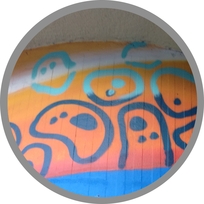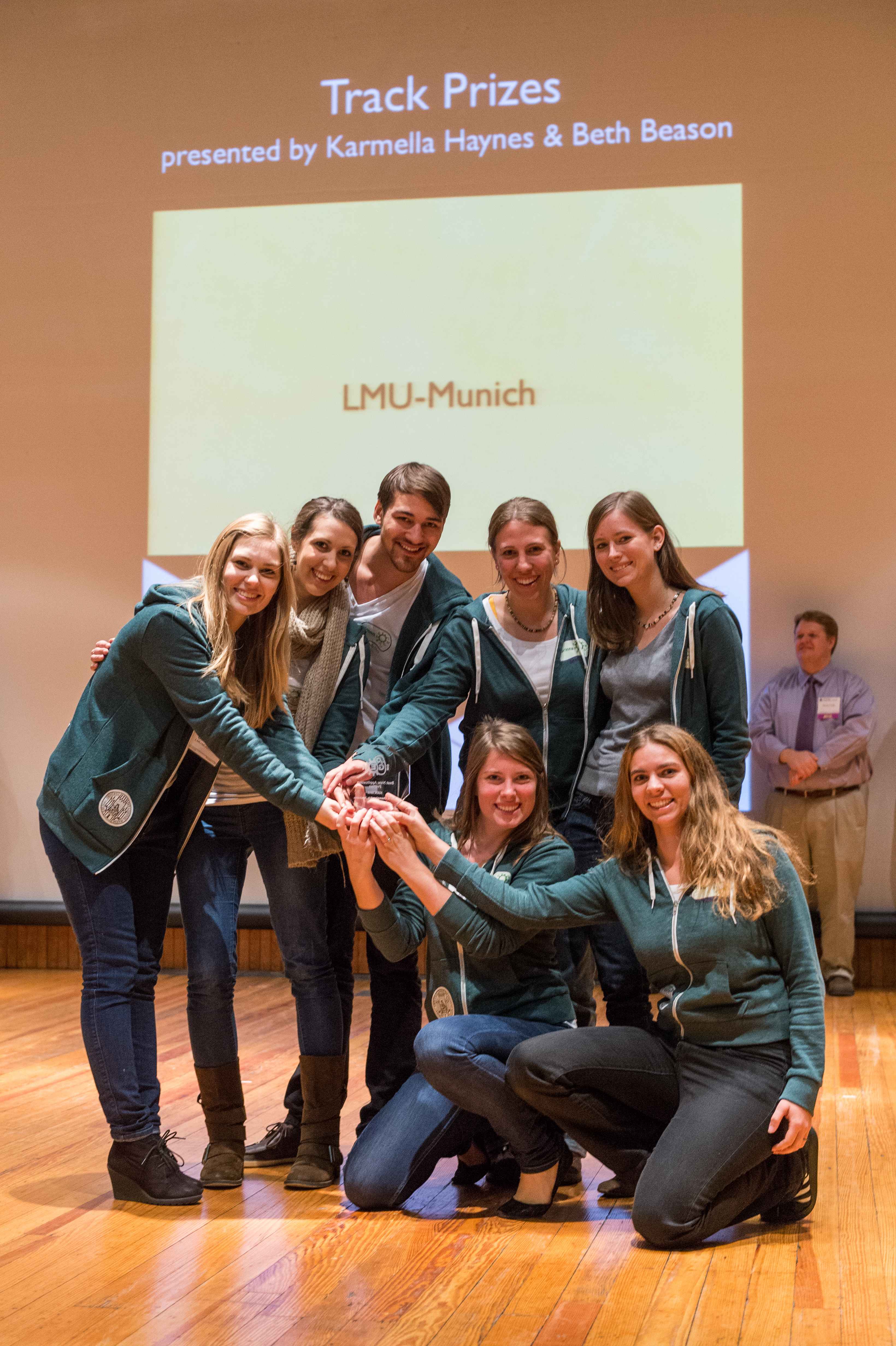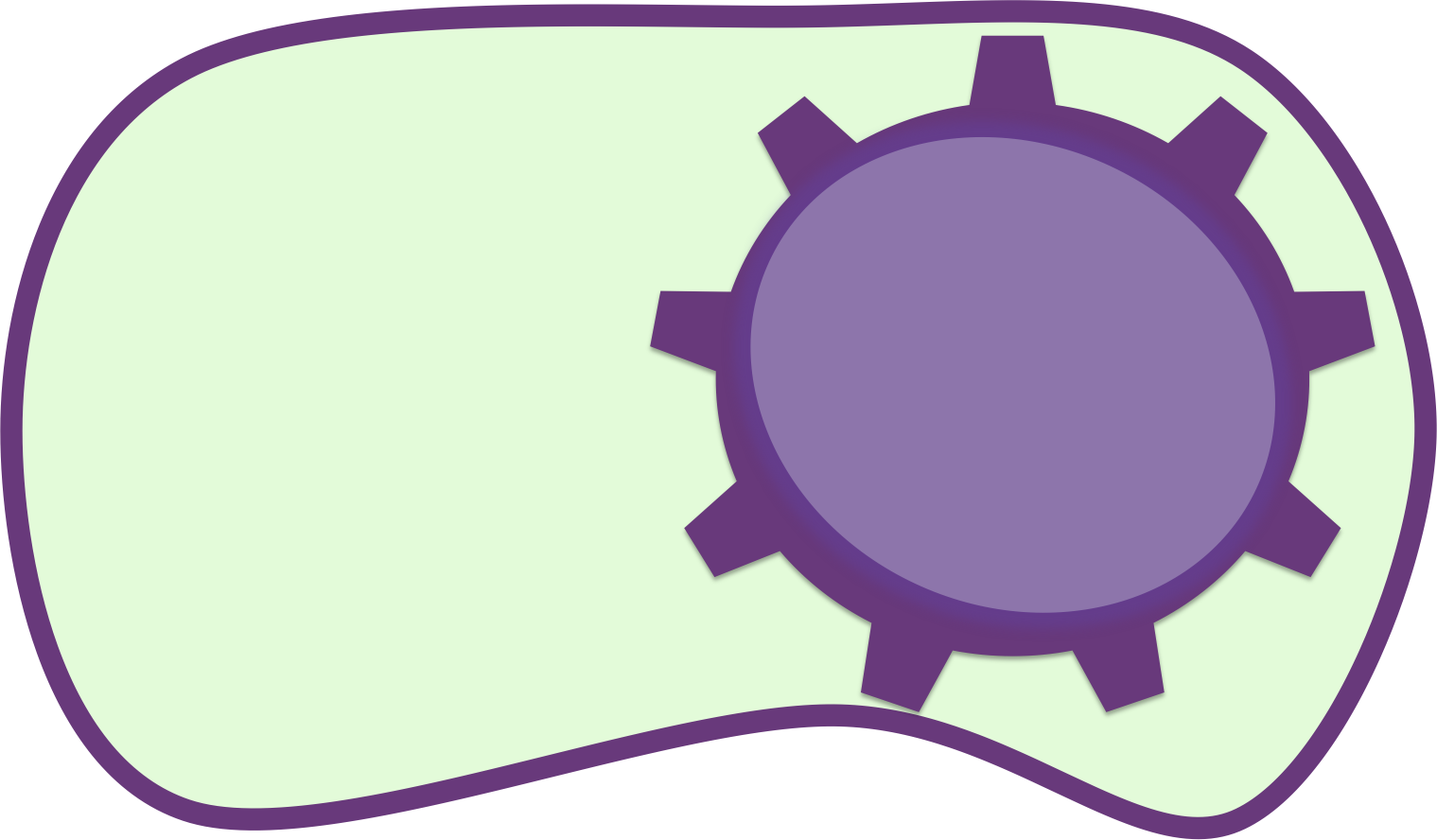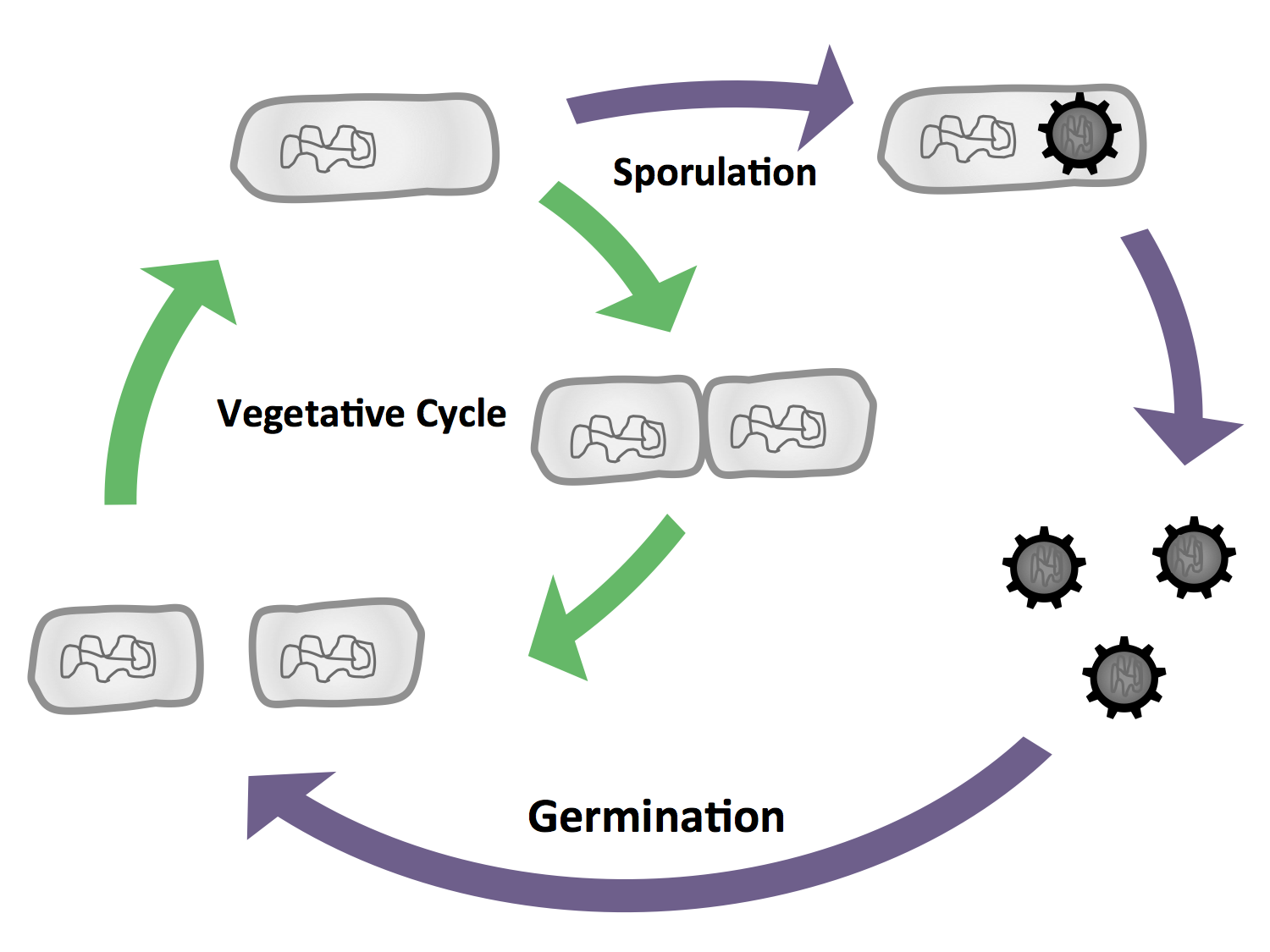Team:LMU-Munich/Bacillus Introduction
From 2012.igem.org
| Line 11: | Line 11: | ||
| - | 1. ''B. subtilis'' is able to differentiate into cells with different morphology and function, the most severe form being the endospore which is formed under stress conditions. But there are also phenomena like cannibalism which makes ''B. subtilis'' a lot more diverse to work with. We will exploit the production of endospores in our project '''Bead'''zillus. The life cycle of ''B. subtilis'' is depicted in | + | 1. ''B. subtilis'' is able to differentiate into cells with different morphology and function, the most severe form being the endospore which is formed under stress conditions. But there are also phenomena like cannibalism which makes ''B. subtilis'' a lot more diverse to work with. We will exploit the production of endospores in our project '''Bead'''zillus. The life cycle of ''B. subtilis'' is depicted in Figure 1. |
| - | 2. ''B. subtilis'' can replicate exogenic DNA via an origin of replication on a plasmid as ''E. coli'' does, but there is a much more elegant way of bringing in exogenic DNA stretches. When flanked by homologous regions to the bacterial genome, it will integrate at high efficiency via homologous recombination at this locus and furthermore be replicated with the genome. This has the advantage that if comparing different things, not only the enviroment is always the same, but also the copy number is from cell to cell and from strain to strain the same, which is not always the case for replicative plasmids. This integrative way of bringing in exogenic DNA will be exploited by us when producing the BioBrick compatible ''Bacillus'' vectors. The comparision between these two ways of bringing in exogenic DNA is depicted in | + | 2. ''B. subtilis'' can replicate exogenic DNA via an origin of replication on a plasmid as ''E. coli'' does, but there is a much more elegant way of bringing in exogenic DNA stretches. When flanked by homologous regions to the bacterial genome, it will integrate at high efficiency via homologous recombination at this locus and furthermore be replicated with the genome. This has the advantage that if comparing different things, not only the enviroment is always the same, but also the copy number is from cell to cell and from strain to strain the same, which is not always the case for replicative plasmids. This integrative way of bringing in exogenic DNA will be exploited by us when producing the BioBrick compatible ''Bacillus'' vectors. The comparision between these two ways of bringing in exogenic DNA is depicted in Figure 2. |
For these reasons in some cases ''B. subtilis'' can be the chassis of choice. Sadly very few teams have worked with this model organism and there is at this time no established BioBrick system to use ''B. subtilis'' as a chassis. | For these reasons in some cases ''B. subtilis'' can be the chassis of choice. Sadly very few teams have worked with this model organism and there is at this time no established BioBrick system to use ''B. subtilis'' as a chassis. | ||
Revision as of 10:28, 11 September 2012

The LMU-Munich team is exuberantly happy about the great success at the World Championship Jamboree in Boston. Our project Beadzillus finished 4th and won the prize for the "Best Wiki" (with Slovenia) and "Best New Application Project".
[ more news ]

+++ Visit our Protocols page for details how to work with B. subtilis +++
Normally E. coli is used as the general chassis in the iGEM competition. We are using B. subtilis as chassis for a few reasons. There are two major differences between B. subtilis and E. coli that are of interest to us:
1. B. subtilis is able to differentiate into cells with different morphology and function, the most severe form being the endospore which is formed under stress conditions. But there are also phenomena like cannibalism which makes B. subtilis a lot more diverse to work with. We will exploit the production of endospores in our project Beadzillus. The life cycle of B. subtilis is depicted in Figure 1.
2. B. subtilis can replicate exogenic DNA via an origin of replication on a plasmid as E. coli does, but there is a much more elegant way of bringing in exogenic DNA stretches. When flanked by homologous regions to the bacterial genome, it will integrate at high efficiency via homologous recombination at this locus and furthermore be replicated with the genome. This has the advantage that if comparing different things, not only the enviroment is always the same, but also the copy number is from cell to cell and from strain to strain the same, which is not always the case for replicative plasmids. This integrative way of bringing in exogenic DNA will be exploited by us when producing the BioBrick compatible Bacillus vectors. The comparision between these two ways of bringing in exogenic DNA is depicted in Figure 2.
For these reasons in some cases B. subtilis can be the chassis of choice. Sadly very few teams have worked with this model organism and there is at this time no established BioBrick system to use B. subtilis as a chassis.
Figure 1: The vegetative cycle is very similiar to the one of E. coli. But if there is a stress condition like starvation, the cells enter sporulation, where they first undergo a polar cell division, followed by the formation of the Endospore. If the enviromental conditions are friendly again, the spore will then germinate and reenter the vegetative cycle.
Figure 2: Exogenic DNA is shown in red while the bacterial genome is black a) The propagation of exogenic DNA if brought in as replicative plasmid. The number of plasmids per cell can vary. b) The propagation of exogenic DNA if it is able to integrate into the genome via homologous recombination
Project Navigation
| +--+--+--+--+--+--+-- | +--+--+--+--+-- | +--+--+--+--+--+-- | +--+--+--+--+--+-- |

Bacillus BioBrickBOX |

SporeCoat FusionProteins |

Germination STOP |
 "
"







